Oct 28, 2023
Sri Gopalakrishnan
Sri Gopalakrishnan is an experienced technology leader with a background in software engineering, product management, and business development. He has worked in various roles at companies like Google, Microsoft, and Amazon, gaining expertise in cloud computing, artificial intelligence, and machine learning. Sri is passionate about building innovative products and teams, driving growth and scalability, and delivering impactful solutions to customers. He has a strong academic background, including a Master of Science in Computer Science from the University of Southern California. Overall, Sri Gopalakrishnan is a versatile and accomplished professional in the tech industry.
One Line Life Lessons from Sri
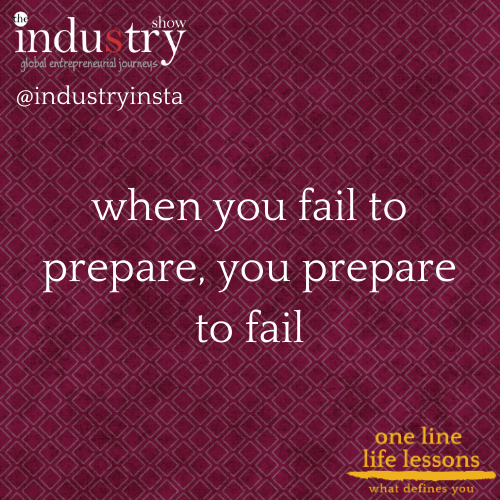
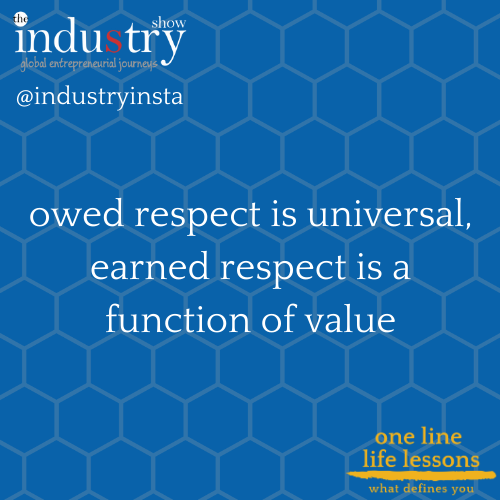
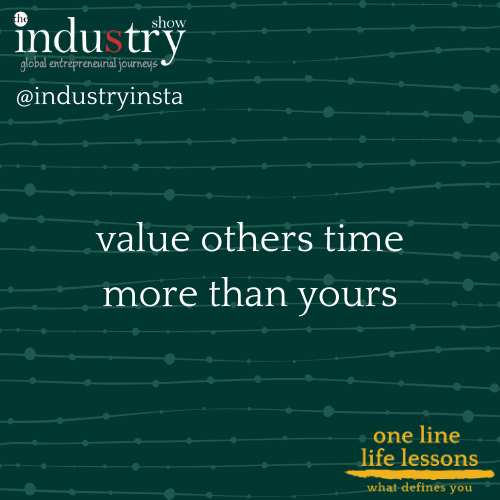
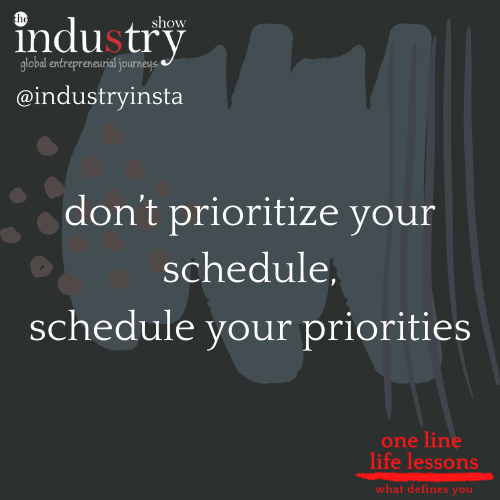
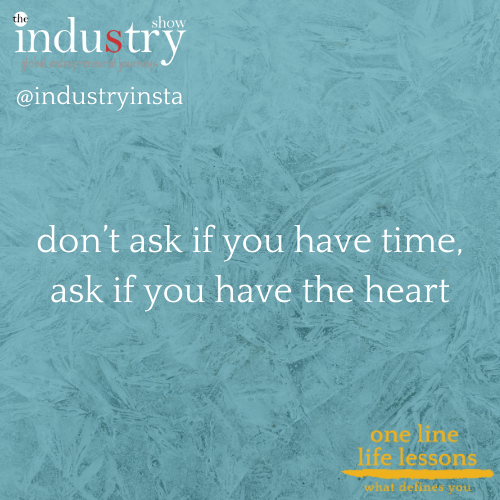
Episode Highlights
– 02:00 – Sri Gopalakrishnan’s background and professional journey, including his roles at eBay and PayPal.
– 06:00 – Inspiration behind starting KindKart, influenced by his father’s self-reliance and a COVID-19 relief project.
– 09:00 – Description of KindKart as the “Instacart of charities,” automating donations for charity needs.
– 12:00 – Values behind KindKart, including transparency, full donation utilization, personalized feedback, sustainability, and serving the underrepresented.
– 18:00 – Challenges faced by KindKart, focusing on donor distribution and acquisition to raise awareness.
– 21:00 – Exciting opportunities for KindKart, including participation in corporate events at PayPal, Google, and Visa.
– 26:00 – Professional failure and lesson learned: Importance of verifying information before sharing, as learned from childhood incident.
– 29:00 – Professional success and lesson learned: Overcoming challenges in transforming PayPal’s data infrastructure, leading to successful cloud migration.
– 35:00 – One-line life lessons:
– Perfect practice makes you perfect.
– When you fail to prepare, you prepare to fail.
– When volunteering, don’t ask if you have the time, ask if you have the heart.
– Don’t just prioritize your schedule; schedule your priorities.
– Respect is universal; everyone deserves old respect, while earned respect is meritocratic.
Show Transcript
Transcript - Full Episode
[Nitin Bajaj] (0:02 – 0:21)
Hey everyone, welcome to The Industry Show. I’m your host Nitin Bajaj and joining me today is Sri Gopalakrishnan. Sri, welcome on the show.
[Sri Gopalakrishnan] Thank you Nitin, thanks for inviting me.
[Nitin Bajaj] Pleasure is all mine. Sri, let’s start with the big question. Who is Sri?
[Sri Gopalakrishnan] (0:23 – 1:27)
Who is Sri? Alright, maybe I’ll give you two answers to it. One is the personal side. I’ll I’m the son of, you know, just two great parents. I have two children, just awesome, awesome two kids, two boys. And I have an amazing wife, Stuti. And I have a small set of friends, but you know, those set of friends, we are thick as thieves. And I’d say as a person, you can probably characterize me as someone who’s kind. On the professional side, let’s say I’ve had over two decades of professional experience, mostly within eBay and PayPal. I spent all my adult life in these two companies. And I started as a presentation engineer at eBay. And when I left PayPal, I was running their data infrastructure, and data platforms and data services, everything data for the company.
[Nitin Bajaj] (1:28 – 2:11)
Amazing. I like how you’re you’re a man of so many talents, but so simple and grounded. So really appreciate that about you. Sri, tell us more about, I mean, you obviously left your corporate career to start KindKart. And it’s fairly recent in its journey, but you’ve already made some pretty amazing accomplishments. So we’d love to hear more about KindKart. What is the mission, the vision, but more importantly, the impact and where do you see it, you know, a few years from here?
[Sri Gopalakrishnan] (2:12 – 5:48)
Got it. Yeah, I’ll start with the inspiration behind this. And that’s my dad. You know, my dad retired when he was 68 years old. And just to put that in perspective, that was about 10, 11 years ago. And largely because he felt he needed to stand on his own financially and be secure and not depend on both me or my brother, you know, for his financial independence.
And I was certain in my mind that this was before COVID. I think this was back in 2019, that I wanted to do something more on the social side, on the giving side. And there has to be some day that I have to stop working in a corporate world. And so 2019, I decided maybe 22 is that year. And this is the year we may, I may have that financial means to take that bold step. But who would have thought we’d have COVID, who would have thought 22 would have turned out to be the year it turned out to be. But nevertheless, I did. I did retire from a corporate world in 2022. But something happened in during COVID that inspired me deeply.
And this is what my dad did. I remember a call that he and I had in April of 2020. He talked about his neighbors, who, you know, they were, he was he was very, very concerned about his neighbors who lived around his neighborhood. And these are daily wage laborers, they go into work, earn money and come back. And he wasn’t sure if these people actually going to survive because more than the flu, it’s actually, you know, will they have food to eat and what did they start. So what started as a very small project of trying to help maybe 2030 families to just feed them.I, it turned out to be a big, huge operation. I raised some money here through my LinkedIn network. And within a week, maybe it was around $12,000, a lot of generous people. And my dad orchestrated the distribution of grocery kits, just simple plastic bag filled with rice, lentils and some basic things to cook a meal for three or four people for a week. And he was able to distribute over 1300 grocery kits in a span of two months. I was just blown away by someone who’s actually almost 80 years old, you know, having to do that all his own. And he recruited people around his local grocer, some people in his apartment, the local policeman, security guys, somehow he pulled us off. That was a big inspirational moment for me. And a lot of what you’re going to hear about KindKart today is, you know, it comes from that inspiration. I’ll come down to what is KindKart. It’s actually very simple. KindKart is the Instacart of charities. Very similar concept like Instacart, but it’s for the charities. So instead of you adding things in your cart and buying things for yourself, charities add things in their cart. And donors, when they discover charities, instead of just paying them money, they say, okay, you know what, I want to give you $50 because this is the cause I care about. It automatically selects items from their shopping cart. The donor pays, items get delivered to the charity, and donors get a feedback for proof of delivery of what was delivered. It’s a very simple concept. And it came from, you know, this experience that my dad and I had during COVID, and how we were helping people without a platform. A very similar concept. My dad was just, I was giving him money, and he was distributing goods. I said, hey, what if I just decided to make this, automate this, and use the background that I have of my commerce experience and my payments experience, and, you know, do something that’s more useful in this world.
[Nitin Bajaj] (5:49 – 6:28)
Again, I love the simplicity behind, but also the power and the impact of what you build. And closing that loop by providing that feedback of, hey, this is what your donation provided for, and, you know, having those pictures from the recipients. That’s amazing. That’s genius. So congratulations on building what you have, and in such a short time. So that’s the amazing thing about clarity, and how you can bring something to fruition, to life at such rapid speed.
[Sri Gopalakrishnan] (6:29 – 9:03)
Yeah. And, you know, sorry, I didn’t want to interrupt you, but I had, there was just one other thing I wanted to add was, in terms of values, there were five things that I wanted to solve for. And again, it’s just through personal experience that we’ve had in our lives, right? And the very first one was that, actually, it’s very important to do transparency, than just say transparency, right? You should know where your money goes when you donate as a donor. I’ve always felt this at the times that I have donated. It’s not that I don’t trust the other people, right? But there is always a subconscious talking in you. And that’s partly what I wanted to solve. Is there a way for us to actually tell the donor where the money was spent, where your money goes, right? That was value number one. Value two was, it’s about, actually, is your money in its entirety being used for the purpose you wanted it to be used?
So 100% of your donations should go directly to the person you intended it to. No tips, no surcharges, no hidden fees, none of that stuff. So what can you do? And how do you have a business model where you can sustain and yet have 100% of the donor’s donation go directly? That was my second value. My third value was around what you talked about, that personalized feedback, right?
You give your money, it’s a transaction, it’s a commitment, it’s done. But can you get a little bit more feedback, right? That makes an emotional connection between what you intended to do and who received the item, right? That was the third value. And the fourth was, and I feel very sorry to say this, but unfortunately, tragedy is the best marketing event for a giving platform, right? And you know, you’ve just seen over the years and even in fact, happening right now, all the terrible things that happen in this world. And yes, people will come out with their open wallets and come and help. But during peacetime, people still need help. I said, what is it that I can do to help people during peacetime versus wartime? That’s the fourth value. So anything that you build with KindCard should actually be sustainable during peacetime and not just for wartime. And finally, the fifth one is, it’s about serving the underrepresented. People who do not stand a chance, do not know how to make themselves visible. There are a lot of people trying to do good things, but there are a lot more who are doing good things, but don’t get the visibility and need help. And if we do a good job in KindCard, we should be able to solve for these five specific values.
[Nitin Bajaj] (9:05 – 9:24)
And I love that clarity because it removes any conflict, any confusion, you know, exactly where you want to go and you’re not going to compromise on any of those other things. And I also love that one of those things is on your t-shirt. So it’s out there for people to see.
[Sri Gopalakrishnan] (9:25 – 9:32)
I can show it to you. It says, give in kind and know where your money goes.
[Nitin Bajaj] (9:34 – 10:04)
That’s amazing. And I remember you said the only money that was spent was on printing these t-shirts, which is next to nothing. So that’s amazing. So tell me about, as you go out and solve for a lot of these world’s problems that exist even on a normal or a good day, what’s the one big challenge you’re facing?
[Sri Gopalakrishnan] (10:06 – 11:08)
So I’d say given where we are and we’re just brand new, like you said, we started to write code in January of this year. By June of this year, we had a pilot running and there was just three or four of us writing code. And August, we said, we fixed all the bugs. Let’s release this product. It’s a functional product, not a marketable product yet. So I’d say the first challenge that lies ahead of us is making it marketable, making it more brand aware so that donors will now come onto the platform because they recognize KindCard is the right kind of platform where their money goes a much longer way towards causes that they care about. So I’d say right now, that’s my biggest challenge. It’s donor distribution versus donor acquisition. It’s getting KindCard in the hands and hearts of people so that they can actually help these folks who are underserved.
[Nitin Bajaj] (11:10 – 11:28)
You’re one month into a product that’s put out in market and here we are. So that’s pretty amazing. In terms of or I would say on the flip side of challenges come opportunities. What’s the most exciting one for you?
[Sri Gopalakrishnan] (11:29 – 12:14)
The most exciting one is that we’ve just gotten invited to three corporate events this year. One at my favorite place, PayPal. So the PayPal Diwali event is on November 8. And they’ve invited me and the KindCard team to come and host a booth. And I expect to see a lot of my friends there and a lot of them being generous and using KindCard. And we’ll have pay with PayPal ready by then. You can actually use PayPal and pay. The second one is at Google and the third one is at Visa. So I’m so excited and so thankful that I got an opportunity to raise awareness amongst employees. And thank you to these corporates for inviting KindCard and just hosting a booth there.
[Nitin Bajaj] (12:14 – 13:01)
That’s pretty amazing. So congratulations to you and the team because that’s rapid progress. You’re there like all of this happening within the first 12 months of you sitting down and starting to write code. That’s pretty impressive. So congratulations. Thank you. I’d love to take this moment, Sri, and look back in the rearview mirror and pull out two incidents or instances. One in which things did not work out as you had expected. It was failure became a lesson. And on the other side, something that blew your own expectations and became a success beyond your imagination. I’d love for you to share an example of both these scenarios.
[Sri Gopalakrishnan] (13:02 – 16:00)
Yeah, absolutely. I’ll maybe give you one personal experience and a professional experience. And on the personal side, I’ve always looked up to my parents for all the values that they’ve taught me. And at the time when this incident happened, I probably didn’t realize this. But it’s probably 10 years later or 20 years later when I realized what of this particular incident I’m about to share. I may have been 10 or 11 years old. And what I’m about to say that that incident is basically the value is if you have good news to share, share it right away. If you have bad news to share, take a moment, pause, think about it. Do you have all the information accurately and say it in a way that you represent the truth properly? Right? It’s a very simple, simple value. Of course, my parents didn’t teach teach it to me this way.
But a particular instance in my life, kind of taught that lesson in me. And you know, and I see so many times in my life that I have to employ this. I’ll give you this. This example must have been 2011. I don’t I don’t remember exactly how old I was. We were living in an apartment.
Maybe a lot of these dogs, stray dogs around our apartment. And there was one dog which gave birth to a litter of puppies. Very cute puppies used to play around with these puppies quite a bit. And one day I came back from school and I saw one puppy dying. And another puppy, slightly bigger one, a larger one is, I wouldn’t say attacking it, but I felt as a child that it was attacking it. And in my mind, I made up I concluded that one puppy killed the other one. I went straight back home and told my dad and mom, I said, yeah, one pup that’s died. And this other pup was responsible for it. And my parents are very upset. My dad was very upset. He actually believed me took my thing and he didn’t feed the other dog for a few days. And my dad loves dogs, just loves dogs. He didn’t feed the other dog. He was very upset that this puppy died. I think a few days later, he found out that actually that other pup was run over by, you know, some motor vehicle. And that’s why it died. And this other one was just, you know, just so he felt terrible. He felt really sorry that he made the other dog stuff because of information that I gave that he believed on face value, right?
Of course, I got I must have got spanked for it. But at that point, at that time, maybe I didn’t even realize how important it is. But so many times in my personal and professional life, I’ve come to realize that when you have something that you’re going to say, that’s not good. That’s not do you have all the necessary information? You know, that’s, that’s true to it or not. Super important lesson to me. That was on my personal side.
[Nitin Bajaj] (16:01 – 16:22)
I agree, it’s, it’s extremely important, because you may have an impact on someone’s life, career, and so many other aspects. And it’s, if nothing else, it’s your responsibility to make sure what you’re conveying, you believe in it. Absolutely, absolutely.
[Sri Gopalakrishnan] (16:22 – 19:05)
Yeah. The other example is the on my professional side, it was an absolute, absolute stroke of luck, is what I would say, more than anything else. But this was a time, this is recent, actually, PayPal, we were moving into cloud. So I was responsible for all the transactional analytical data in the company. And we had a massive, massive program for moving our analytical workload onto cloud. At that point in time, our, you know, our data infrastructure or data needs were growing in 100% year over year, the demand for data was very, very high. Okay, we should move to cloud. We have attempted to move into cloud several times on the data side, it’s very, very difficult. But there was one particular activity that happened right around the time COVID hit is the need for security or securing your infrastructure, your environments, your tools, just dramatically increased. So think of this, we went, most companies went from having one physical office, but you have security, you know, you do all the security controls on your physical office, right in your corp network, to suddenly 30,000 offices overnight. Right. And so the demand and need for security was very, very important.
And, and there was one specific program that we were driving, which was, you know, getting people to move from one technology set to another, because of the security gaps that that technology provided. Very simple kind of a problem. But because it’s security got the whole company’s attention. And we moved over 5000 employees operating on one tool, tool set to a completely brand new tool set in about four to five months. Wow, it’s very, very difficult. Think of it, people have been using this technology for decades. This is how they make their livelihood. If I’m a SQL engineer, an analyst, I use a particular tool. And suddenly you’re telling me I can’t use this, use something else, right. So having to train them, and it was nightmare, it was difficult, right. But an unintended consequence. At that time, for most people, I knew it, my boss knew it, and a few of us knew it, you know, is this was the path to getting everyone onto cloud like that. Once you get everyone down into using one thing. Now I can change, you know, I move them into the house. Now I can change the foundation, nobody would even know. So that I’m very, very proud of what we did that actually got us to do, you know, move one of our largest analytical infrastructures onto cloud, something that we were the first companies of that scale and size to have done at Google. So very, very proud of that accomplishment.
[Nitin Bajaj] (19:06 – 19:52)
You should be and you know, you’re very humble to say luck had a role to play in it. Maybe there was a bit of a timing impact, but you were ready already. And you just knew that you can move this along. So kudos to you for kind of catching that and being prepared to leverage that opportunity. So thank you. Yeah, those are massive numbers.
Like having done change management myself, I know change is never easy. And especially for for people who are experts in their domains and fields, and have been doing something the same way for decades to get them to change. It’s impossible.
[Sri Gopalakrishnan] (19:53 – 20:01)
Yeah, yeah. Oh, yeah, it is transformation. That’s why transformations are tough. It’s easy to build something new, like what I’m doing, but to change something on the ground.
[Nitin Bajaj] (20:03 – 20:16)
So that brings us, you know, some of those lessons bring us to my favorite part of the show, which we call the one line life lessons. I’d love to hear your one line life lessons.
[Sri Gopalakrishnan] (20:17 – 20:21)
Alright, I got five for you. Since you asked me to be prepared for five.
[Nitin Bajaj] (20:21 – 20:21)
Sure.
[Sri Gopalakrishnan] (20:22 – 23:21)
This first one that I saw was, this was my piano teacher for my kids. We used to take my kids to learn piano at her place. And she had this written on a board, which to this day, you know, I found it extremely inspiring. It’s perfect practice makes you perfect. Very simple. But it resonated with me. And since then, you know, I’ve kind of held on to it. That’s, that’s one. A second one is something that I read many years ago. And I know how important this is, is when you fail to prepare, you prepare to fail. I think you would have heard this many people would have heard this something I made up, but I thought it was an interesting one. And, and I’m, I’m also the kind of person who, you know, I give attention to preparation.
Because, you know, it is, it is important. My third one is something that I recently now acquired some knowledge that I acquired recently, around volunteering. And I realized many, many times when you say you want to many people want to volunteer, right? Because that’s, that’s, you know, they feel it, they want to do it. But a response that you would often hear is, I don’t have the time. Right? So actually, what I’ve come to realize is when you volunteer, don’t ask yourself, if you have the time or not, ask yourself if you have the heart. If you have the heart, you’ll find the time. So that’s my, that’s my third one. My fourth one is kind of related to it is don’t just prioritize your schedule. It’s more important to schedule your priorities. And that’s how you find time. Right? That is my fourth. Actually, this one is important to me, I value others time more importantly than mine. So and I had learned this somewhere that, you know, on the movie sets, you’re from LA, on the movie sets, if you are early, you’re on time, if you’re on time, you’re late. And if you’re late, you’re fired. So other times are important to be respectful of it. And finally, talking about respect, my last one, and this is a very important one is respect is a very core value that I, you know, that I cherish. Old respect. Old respect is universal. Just the fact that we’re human beings, right? It’s we’re all deserved old respect. But earned respect is a function of, you know, the value that we bring into this world. And it’s meritocratic. Right? Sometimes people get that mixed up. I used to get that mixed up many years ago. And I realized that everyone deserves to be respected. I don’t respect someone just for the knowledge they have or what they’ve contributed.
Everyone and you know, everyone deserves that old respect. So those are my five.
[Nitin Bajaj] (23:23 – 24:13)
So much depth, but again, so much clarity there. And a couple of those you mentioned are my personal favorites. And especially around managing priorities and time and, and being respectful of others and their time. So, Sri, thank you so much for sharing your online life lessons, your journey and your story. Congratulations again, on kind card and how speedily you’ve brought it to life. And I can only see it continuing to get more and more success, bring more donors, bring more beneficiaries onto the platform, and wish you really good luck and success. And we’d love to bring you back on in a few months and share more of your success stories.
[Sri Gopalakrishnan] (24:14 – 24:18)
Of course. Thanks. Thanks, Nitin. And thanks for giving me this opportunity.
[Nitin Bajaj] (24:18 – 24:23)
Pleasure is all ours, Sri. And congratulations again. Thank you. Thank you.



